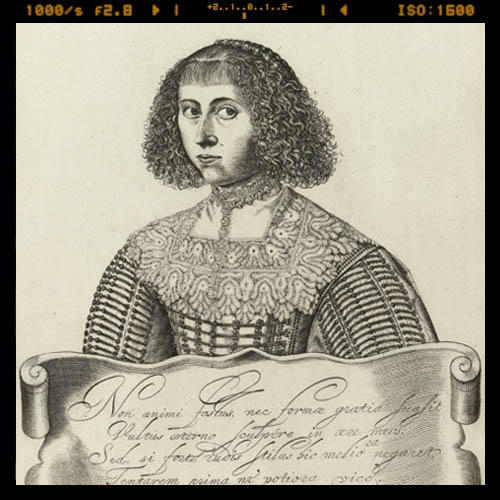Ask a Badass is an advice column answered by history’s hidden badasses, writing as they see their whole lives and our modern world.

Dear Badass,
How does one go about approaching emotional situations, ones where reason doesn’t seem to cut it? This is one of the central questions of my life. Oy. I’d love to hear advice on this.
Science is Like Magic, Only Real
Dear Science is Like Magic, Only Real,
I applaud the name you’ve chosen for yourself, so let us take an academic approach. We should begin with your thesis. You are assuming facts not in evidence. We are in and of ourselves part of the natural world, which has an order of its own. Both our emotions and our reason are part of this human animal, mercurial though it be.
Yet your question assumes there are problems of the heart and problems of the mind, with no intersection between the two. It has been my experience as a woman of both scholarship and faith, that the two are not incompatible, merely easily led astray.
I’m brought to think of the day my brothers insulted me mercilessly after I interrupted their lesson. My father had been testing their retention of French, which was proving to be an arduous endeavor. To speed things along, I began to supply the answers my brothers were missing. I finally received the prize of my father’s attention.
It was also the beginning of my own course of study, which has proven the making of my life. I learned Latin, Greek, French, and German to allow me to commune with minds across Europe and throughout time. With Homer and Virgil as my guides, I wrote poems that traveled far farther than I ever did. The one afternoon led me to such academic heights that I was the first woman permitted to attend lectures Utrecht University, albeit behind a screen.
And yet, that afternoon also saw my brothers bring me to tears after my father left. There was certainly then a sense that reason “didn’t seem to cut it”, as you say. My knowing the answers did not change the fact that they did not. Father would have been displeased with them no matter what I did. It seemed entirely a matter of emotion.
And yet, even through my childish tears, I could see their flawed logic. In understanding their senseless behavior with my reason, I was able to forgive them with my heart. My tears evaporated along with my heart.
Both in my community of scholars and in my community of faith, I have seen men bewildered by the emotions of others or their own emotions. They, too, struggled to navigate their emotions with their minds. But often, the problem was not that the situation didn’t call for reason but that their reason was not serving them.
The men who proposed to me thought their appeal to my emotions had been unsuccessful. In fact, my logic overruled all thought of marriage. If married women are given no scope of movement, not even the right to make basic decisions for themselves, how can an active mind enter into that state? Those failed proposals were all aimed at my heart. Now, if one had appealed to my reason it might have succeeded.
Of course, the challenge of this proposition is neutrality. How do you apply logic when your point of view may obscure you from finding all the facts? Archimedes said give me a lever and a place to stand and I will move the world. Of course, his statement stayed theoretical because he could not stand outside of the planet. Where is our place to stand, outside of the emotions and limiting perspectives in personal matters?
That, then, is our true challenge: it is not logic vs emotion. If it is the emotions of others that bewilder us, how do we find enough empathy to see ourselves in the eyes of others? If we wrestle with our own, how do we find enough clarity to see all of our underlying factors? For example, a seemingly illogical attraction might in fact be the heart’s perfectly logical response to seeing something in another’s life or spirit that is missing in our own.
I spent my life seeking, tearing through philosophy, and breaking new ground as a scholar. To some, it might seem illogical or a result of unreasonable emotion that I then dedicated myself to the spiritual community of Jean de Labadie. In fact, it was perfectly rational to align myself with this community of seekers. Like me, they searched for answers, finding God in each other and all around us.
For you, the cure may be empathy, thoughtfulness, and the simple expedience of asking the other person what they are thinking. It may mean being truly honest with yourself about your past and the things that drive you. Either may perform wonders in your quest to reconcile logic and emotion.
I wish you luck in your experiments.
Anna Maria van Schurman
Born in Cologne in 1607 to a family of religious refugees from Antwerp. Died in a religious commune in Friesland in 1678 of what’s described as frail health or old age. Anna Maria van Schurman was an artist, scientist, and scholar who was the first woman to study at a Dutch university. She gained international fame for, among other accomplishments, a poem that advocated women in university and put her into contact with other female scholars across Europe. She was also a deeply religious woman who withdrew from the world to join the community of Jean de Labadie, which was a Christian fellowship of shared possessions and faith.
Fill out our form, and we’ll let you know if one of the badasses responds!